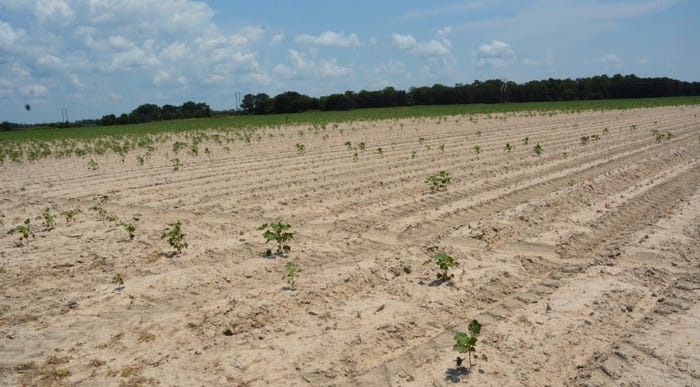
“We’re staring at massive losses.”
This was the message Arkansas farmers shared with U.S. Sen. Tom Cotton (R-Ark.) at a July 6th agricultural roundtable in Pickens, Ark. Sen. Cotton hosted the meeting to hear from farmers affected by recent flooding.
One of the farmers in attendance was Andrew Ross from Desha County. Ross is farming his sixth crop. He told Cotton he lost 1,600 acres of soybeans when June rains dropped nearly 20 inches of water on his fields in a 48-hour span.
“The timing couldn’t have been worse,” Ross said. “I had already spent almost all of my crop input budget on the soybeans that were lost. That money is gone, and we can’t get that back.”
“Everyone I know has been affected,” he added. “This will have a ripple effect on the entire community.”
Other farmers in attendance shared similar experiences and expressed a desire for swift federal aid to help mitigate massive crop losses. The University of Arkansas Division of Agriculture estimates the flooding caused more than $205 million in damages to farms in the region.
“This is an urgent situation, and time is of the essence,” said Jay Coker of Stuttgart, Ark. “Some farmers will have a hard time recovering from this.”

Cotton admitted it will take more time than most farmers have to push a federal relief package through Congress. Though he was cautiously optimistic that there could be other avenues to provide aid to those affected by the unprecedented rainfall.
“You can see the stress and the strain this situation has caused,” Cotton said. “The clock is ticking when you have crops in the ground, and bureaucratic promises of financial relief in six to 18 months don’t pay the bills now.”
“We have granted a lot of discretionary authority to the Department of Agriculture to handle unique situations like this,” he added. “We’re going to work with them to see if we can find tools to help get the kind of urgent relief that folks here in farm country need.”
Drainage issues
During the roundtable, farmers frequently brought up the inadequacy of drainage infrastructure in southeastern Arkansas. The breach of an irrigation canal just east of Dumas, Ark. on June 10 added to flooding problems.
Local farmer Danny Day said at one point all of his crops were under water. In fields where it receded quickly, crops survived. But in other fields, water was standing for a week or more. He ended up losing 2,800 acres of cotton, soybeans and corn.
“We could use some investment in our drainage system,” Day said. “It’s hard to prepare for 20 inches of rain in such a short time, but improvements to our canals could reduce damages in the future.”
“Some of these ditches were designed in the 1940s and were not built to handle the significant weather events that have occurred in recent years,” Coker said.

Cotton said water projects for agriculture would be a priority in President Biden’s infrastructure proposal. In the short term, he was hopeful the federal government would allow state and local governments to spend surplus Covid-19 funds to address needed infrastructure improvements.
“We spent a lot of money during the pandemic to help state and local governments. They should be able to spend it on things they need,” Cotton said. “From what I heard today, more effective drainage structure may be the single biggest need for farmers in southeastern Arkansas.
About the Author(s)
You May Also Like






